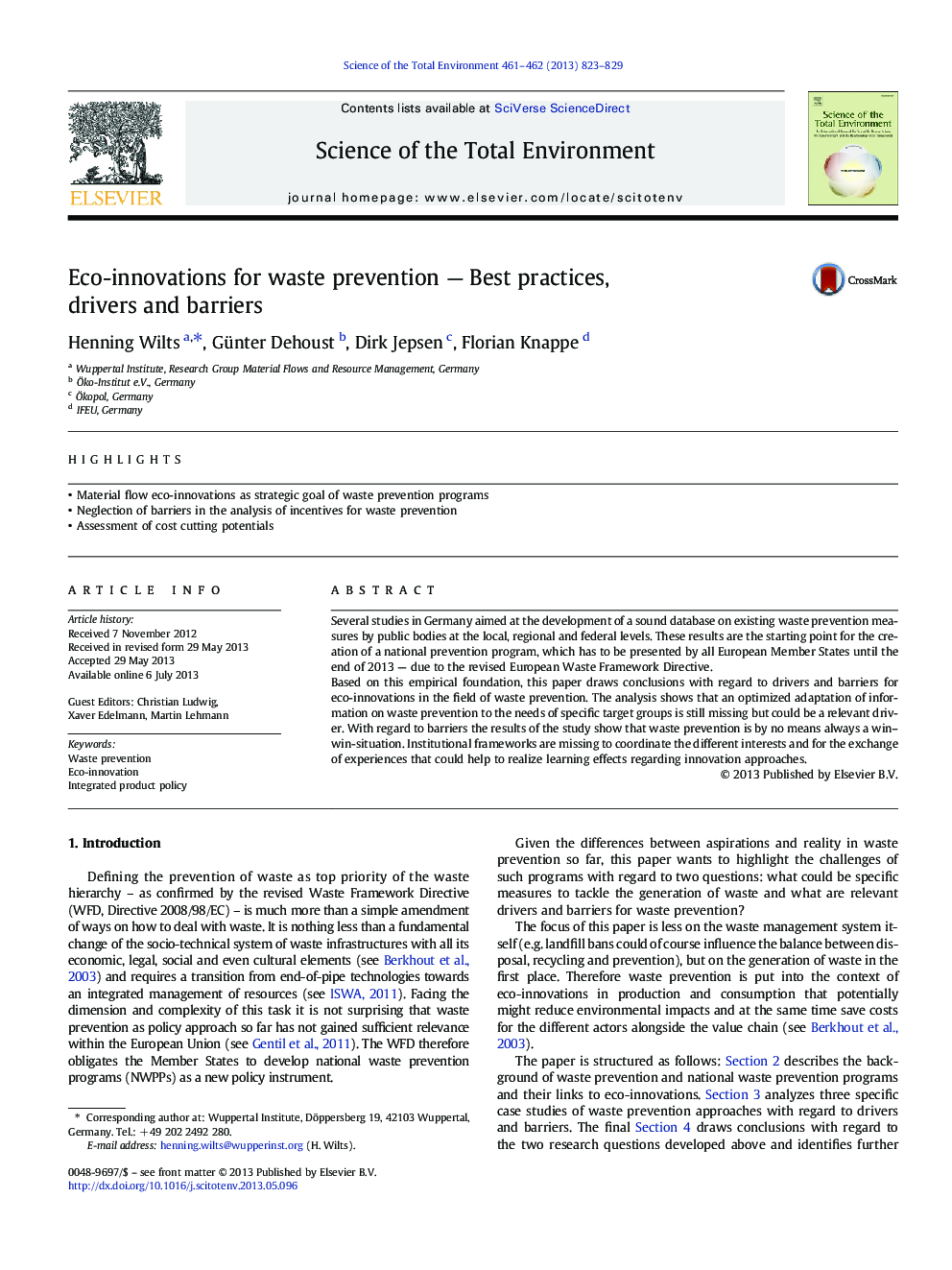| Article ID | Journal | Published Year | Pages | File Type |
|---|---|---|---|---|
| 6332085 | Science of The Total Environment | 2013 | 7 Pages |
Abstract
Based on this empirical foundation, this paper draws conclusions with regard to drivers and barriers for eco-innovations in the field of waste prevention. The analysis shows that an optimized adaptation of information on waste prevention to the needs of specific target groups is still missing but could be a relevant driver. With regard to barriers the results of the study show that waste prevention is by no means always a win-win-situation. Institutional frameworks are missing to coordinate the different interests and for the exchange of experiences that could help to realize learning effects regarding innovation approaches.
Related Topics
Life Sciences
Environmental Science
Environmental Chemistry
Authors
Henning Wilts, Günter Dehoust, Dirk Jepsen, Florian Knappe,
